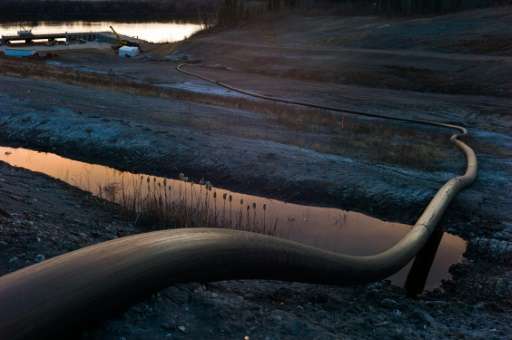Canada to consider CO2 emissions in approving new pipelines

Canada's environment and resources ministers announced Wednesday a new framework for approving the construction of pipelines that must consider the direct and upstream greenhouse gas emissions linked to the projects.
The new requirements will be tacked on to Canada's existing environmental assessment process, and will apply to projects currently being scrutinized by the national energy regulator.
This will also allow the government to also consult more broadly with indigenous peoples about projects that cross their traditional lands.
"No project review will return to square one," Environment Minister Catherine McKenna told a press conference, alongside Natural Resources Minister Jim Carr.
The changes, however, are expected to result in the addition of up to six months to the review of two pipelines—the Trans Mountain pipeline expansion in western Canada, and the new Energy East connecting the Alberta oil sands to Atlantic Coast refineries.
"Projects will only get done if they're done sustainably and responsibly," McKenna added.
The new rules do not state how much weight will be given to carbon emissions in the environmental assessment.
If a project is deemed to have "significant effects" on the environment, McKenna said it would be presented to cabinet for a decision. She said the cabinet would consider "a whole range of factors" including economic social, environmental factors, and "what's in the public interest."
Canada is the fifth largest oil producer in the world and its economy has been hit hard by plummeting oil prices with tens of thousands of jobs shed in Alberta over the past year.
Meanwhile, the nation is struggling to get its oil from landlocked Alberta to markets in the United States and overseas amid strong opposition from environmental activists to the construction of new pipelines, as upstream oil and gas extraction is set to soar.
A report released earlier by the National Energy Board forecast a doubling of oil production to six or seven million barrels per day by 2040.
© 2016 AFP


















